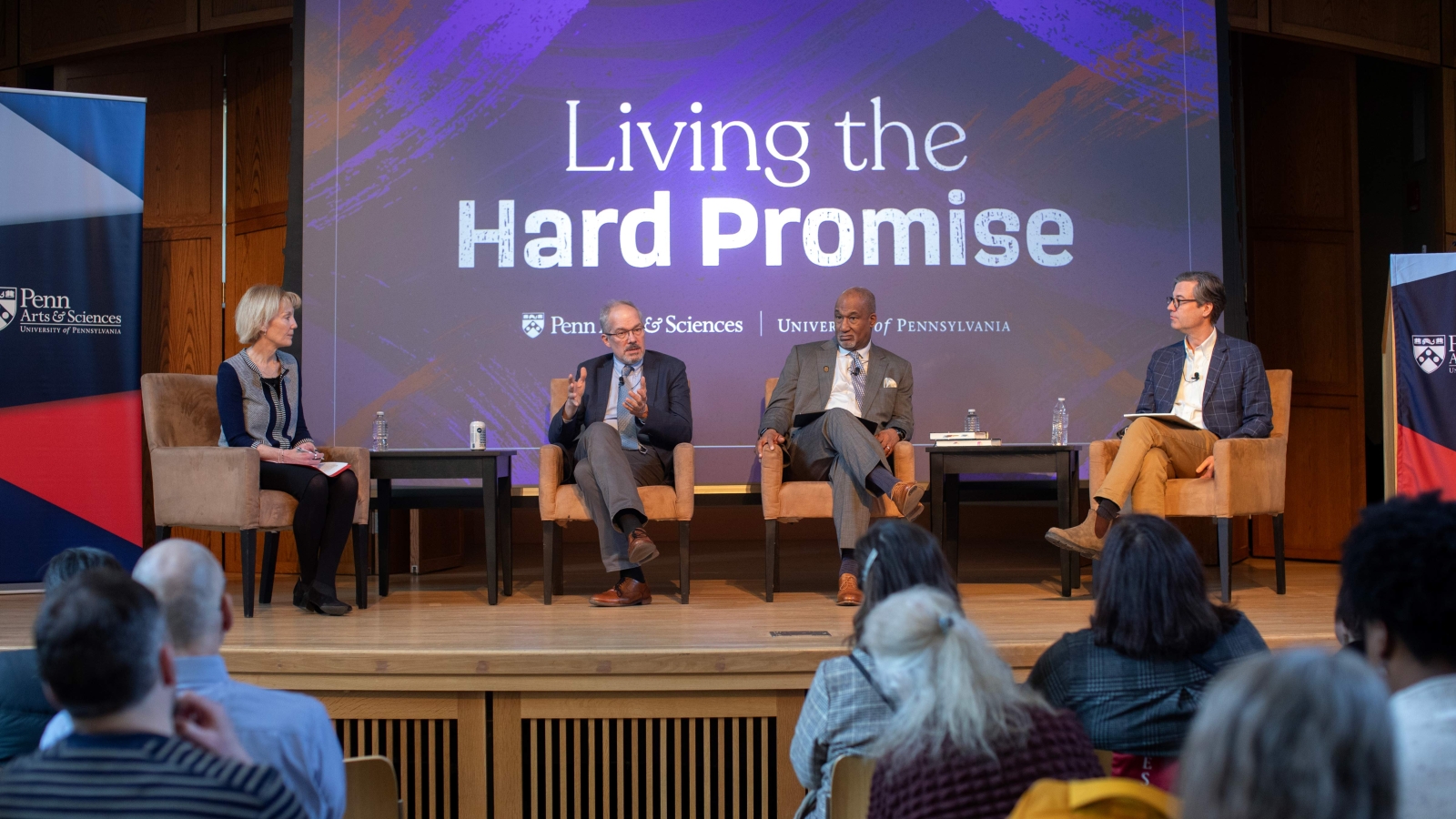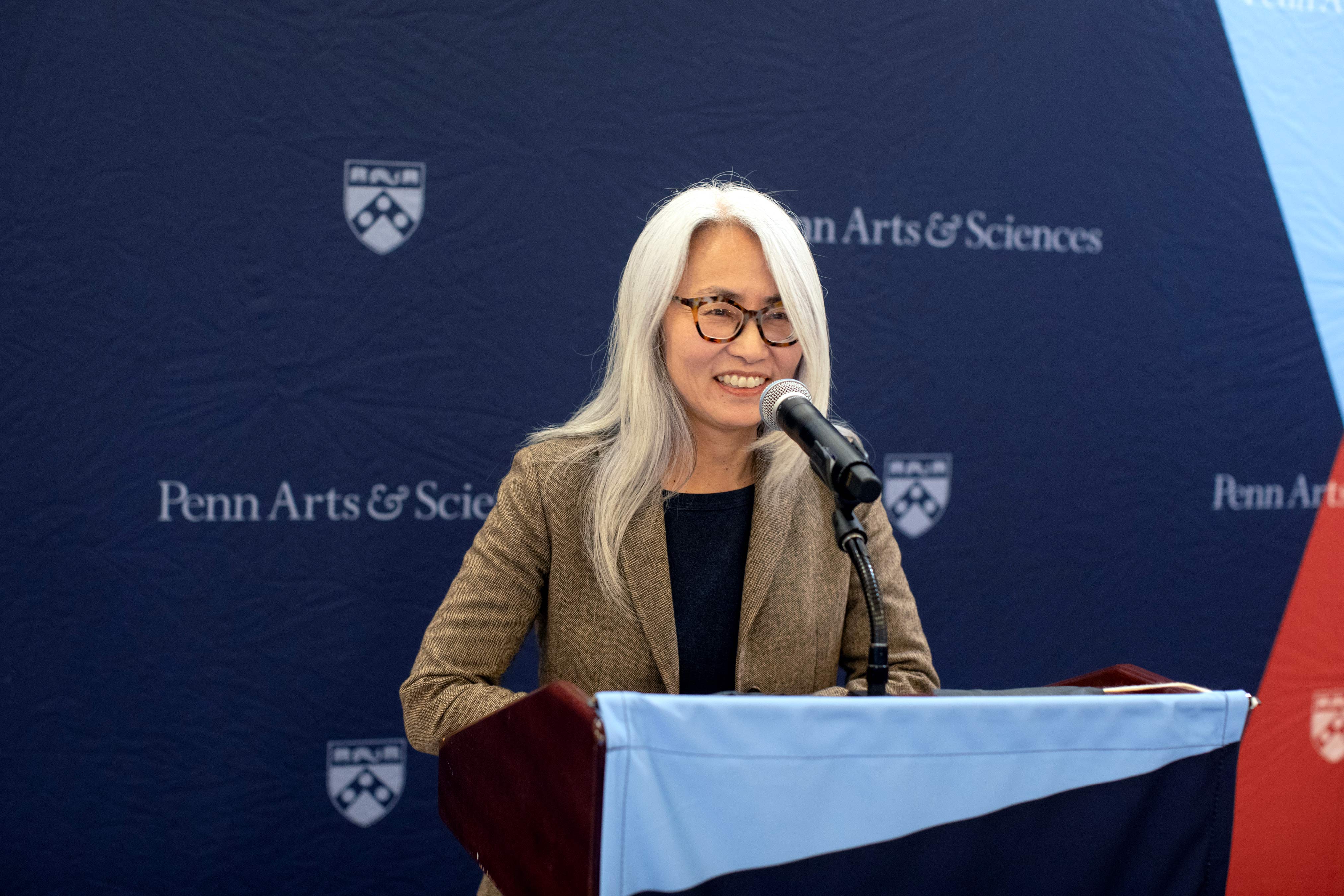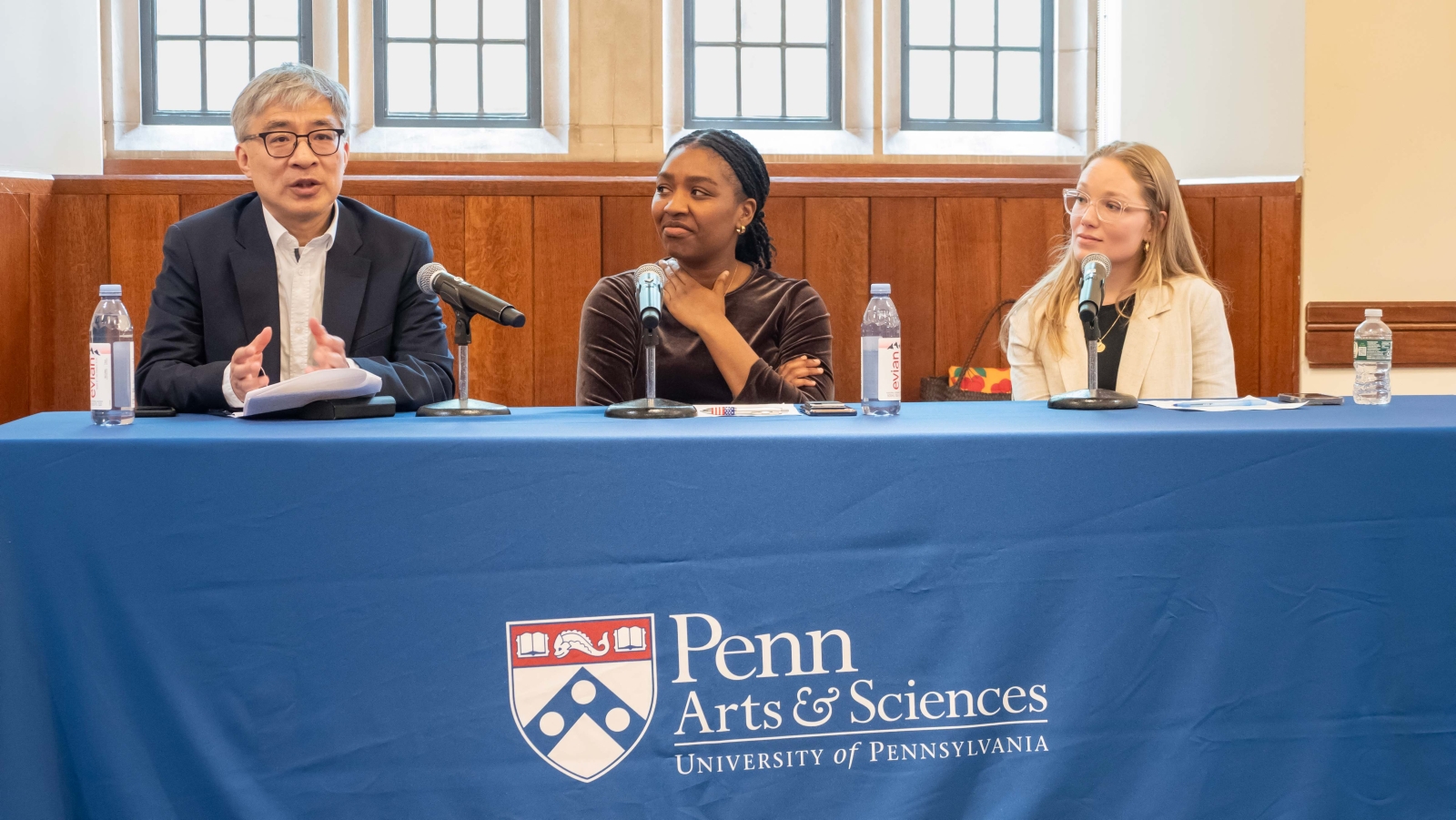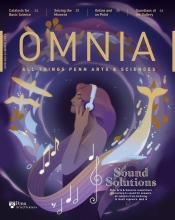Addressing Tough Topics
The Living the Hard Promise dialogue series offers a chance for frank conversation about subjects from free speech on campuses to the role of universities.

In the midst of a challenging semester and difficult world events that were felt across Penn, fundamental questions were being asked about what free speech means on a university campus. Penn Arts & Sciences responded by creating a new dialogue series called Living the Hard Promise.
“My colleagues in the Dean’s Office noted with concern the struggles within our community to hear one another and to respond with empathy, respect, and an open mind,” says Steven J. Fluharty, Dean and Thomas S. Gates, Jr. Professor of Psychology, Pharmacology, and Neuroscience. Living the Hard Promise was one way the School could create opportunities to share perspectives, provide informed commentary, and foster dialogue on difficult issues, he adds.
“It seemed essential at this moment to find ways for our community to engage constructively and not allow the difficulties of the moment to prevent us from listening to and learning from each other,” says Beth Wenger, Associate Dean for Graduate Studies and Moritz and Josephine Berg Professor of History. Wenger, along with Paul Sniegowski, Stephen A. Levin Family Dean of the College and Professor of Biology, and Brighid Dwyer, the School’s Vice Dean for Diversity, Equity, and Inclusion, helped flesh out the series and propose topics.

A 60-Second Lecture from Josephine Park, School of Arts and Sciences President’s Distinguished Professor of English.
Wenger came up with the series title. “The idea of the hard promise was a double entendre,” she says, “the notion that a commitment to free expression is both a firm promise and a difficult one.”
Sniegowski—who will leave Penn at the end of July to become the president of Earlham College in Indiana (see more on p. 5)—has had conversations with undergraduates on all sides of these events. “Students told me they wanted to express and share ideas about what was going on in the world and on campus, but they felt in some ways inhibited from doing so,” he says. “We’ve heard a lot about whether certain ideas can be expressed among our students, faculty, and staff—and about who decides. And that raises the question of the value of open expression.”
Indeed, the first installment of the series, “Free Speech and Universities,” focused on exactly this question. In conversation with Wenger, Sophia Rosenfeld, Walter H. Annenberg Professor of History, discussed the distinctions between Constitutional protections for free speech embodied in the First Amendment and the tradition of academic freedom on college campuses, which stems from the rise of research universities at the turn of the 20th century.
The idea of the hard promise was a double entendre, the notion that a commitment to free expression is both a firm promise and a difficult one.
The second forum, “What Are Universities For?” delved deeper into the purpose of higher education. Moderator Laura Perna, Penn’s Vice Provost for Faculty, started off by asking that question directly of the three panelists: Sniegowski; Herman Beavers, Julie Beren Platt and Marc E. Platt President’s Distinguished Professor of English and Africana Studies; and Peter Struck, Professor of Classical Studies.

A lunchtime panel with Professor of Sociology Guobin Yang and doctoral students Adetobi Moses and Liz Hallgren.
Acknowledging that elite universities historically served as perpetuators of class, wealth, and power, Sniegowski said that universities ideally are “places where new understanding of humanity and the rest of the natural world is developed and shared.” Beavers responded that universities are committed to “open-endedness” and are places where students and faculty can use their voices, while Struck described the university as a “disinterested public square” where people can pursue ideas for their own sake.
Subsequent Living the Hard Promise topics were presented as part of the long-running Penn Arts & Sciences series 60-Second Lectures, with topics including “Asian America and the Hard Promise,” “The Liberating Arts,” and “Why Listening Matters.” (Videos of these short talks can be viewed at www.sas.upenn.edu/60-second.) In addition, a lunchtime discussion under the Living the Hard Promise umbrella focused on understanding social media discourse.
“These forums are about addressing difficult topics,” Wenger says, “but they’re also a step toward creating the kind of campus community we all want. I believe we can rise to the challenge. In SAS, we believe that the liberal arts provide the essential tools to enable us to talk through the difficult problems of any moment in time. This is a small attempt to do just that.”
For more information on the Living the Hard Promise series, visit https://web.sas.upenn.edu/conversations.



